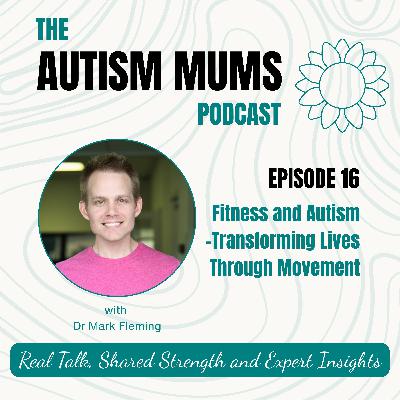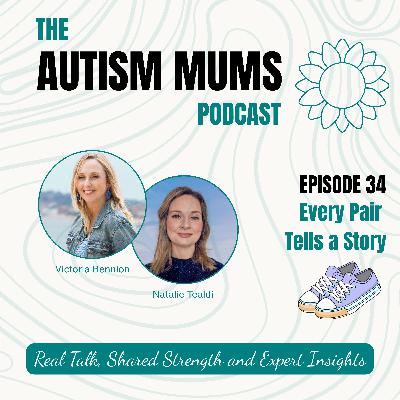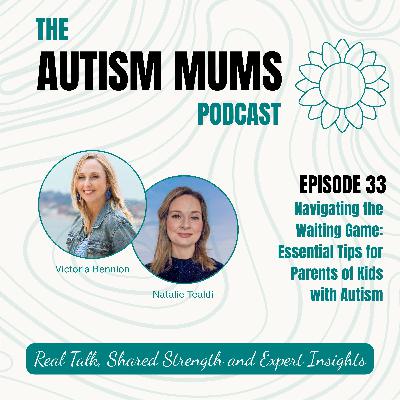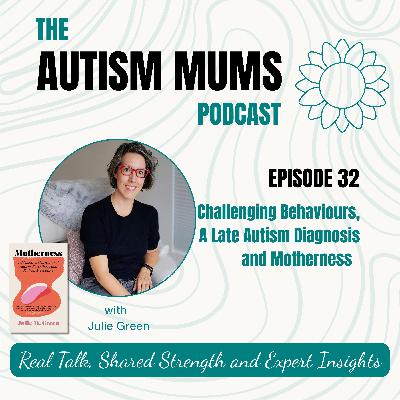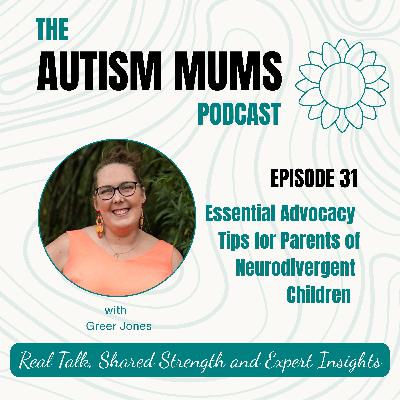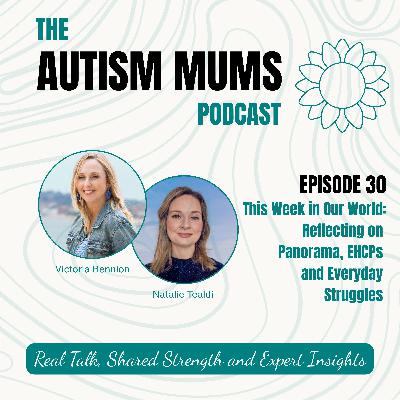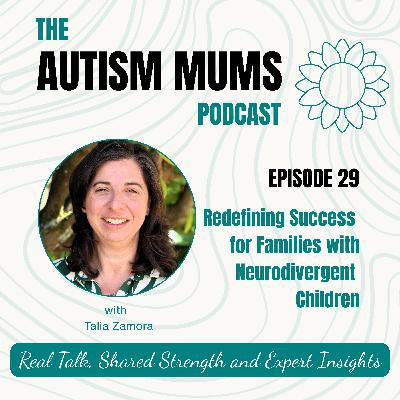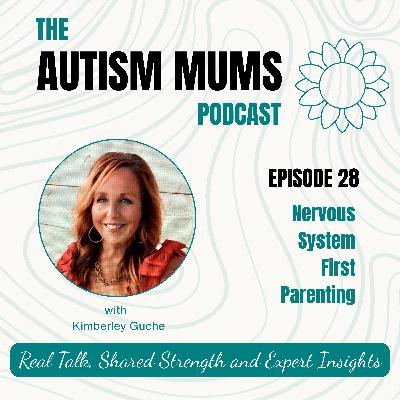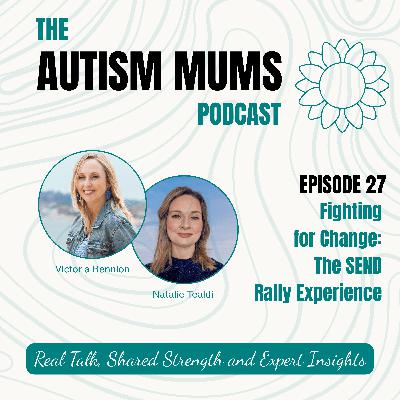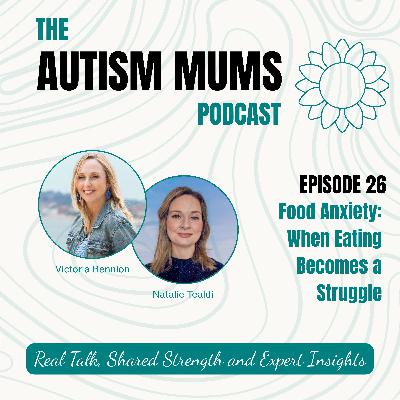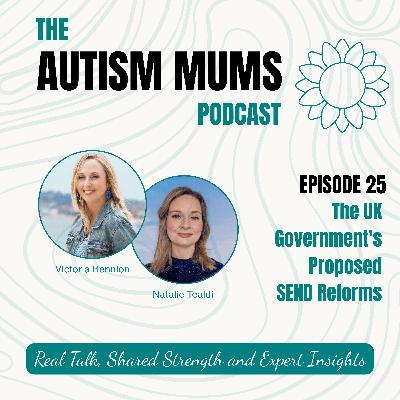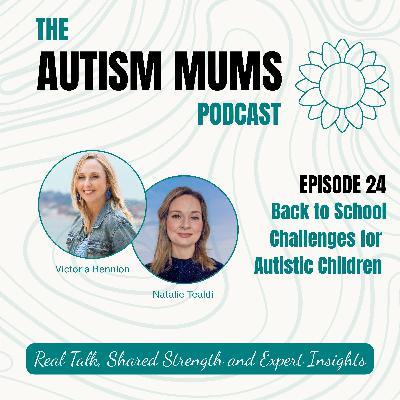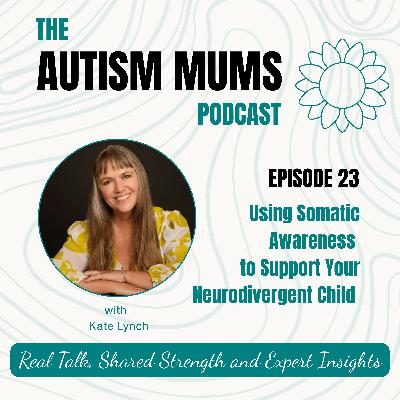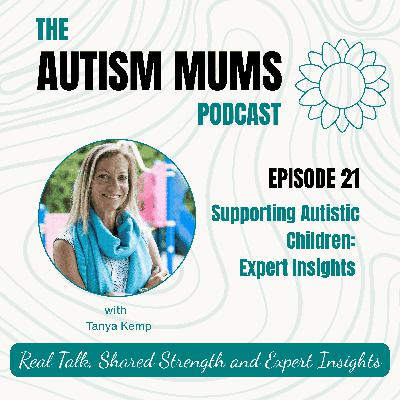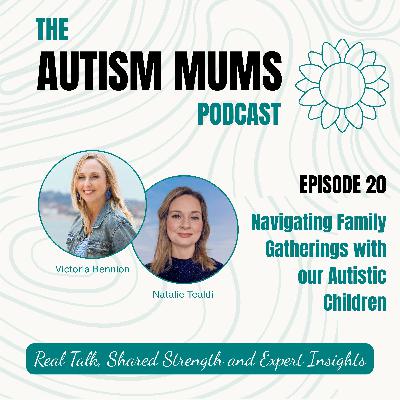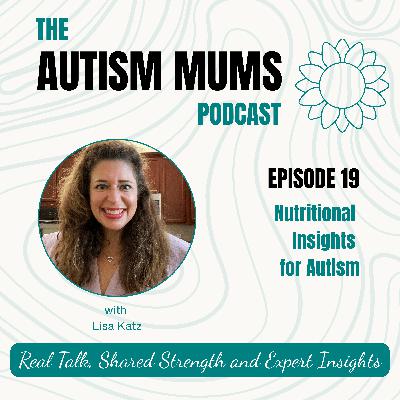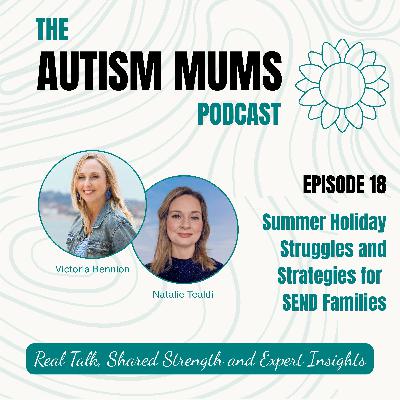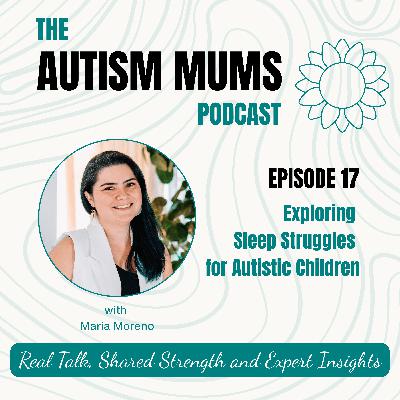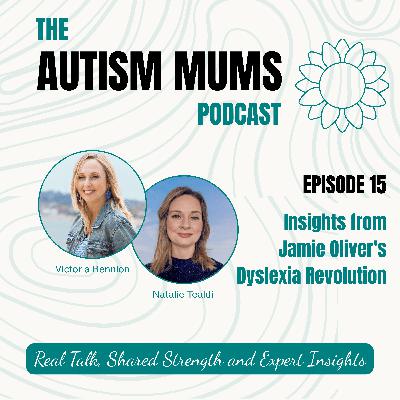Fitness and Autism - Transforming Lives Through Movement with Mark Fleming
Description
In this inspiring episode of The Autism Mums Podcast, we’re joined by Mark Fleming, an autistic fitness coach and founder of a fitness brand dedicated to supporting neurodivergent individuals. Mark shares how sport and movement helped him regulate his own system growing up and how he now empowers others through exercise.
From working with Special Olympics athletes to seeing remarkable transformations in his clients — including improved focus, reduced anxiety, and even newfound verbal skills — Mark’s work highlights the life-changing benefits of accessible, neurodiversity-informed fitness.
We explore:
- How exercise can support sensory regulation, cognitive functioning, and behaviour in autistic children and adults.
- Practical strategies to help children ease into movement, even if they are reluctant.
- Mark’s own journey to becoming a fitness entrepreneur and advocate for neurodivergent athletes.
Whether you’re wondering how to help your child build confidence through movement, or looking for hope and inspiration, this episode is full of practical wisdom and encouragement.
Biography
Dr. Mark Fleming is an autistic entrepreneur who owns and runs a fitness brand called Equally Fit where he provides exercise training and consulting to those with disabilities. He obtained his Bachelor’s and Master’s degrees in Exercise Science from The University of Alabama and his PhD in Kinesiology from Concordia University at St. Paul. He has spent time working in Applied Behavior Analysis and has coached Special Olympics, where his athlete's all won gold at the state competition level. He has been featured on CNN.com, Mens Health magazine, various websites and other magazines as well as on every local news channel in Tampa. He served as the first autistic chair for the constituency board for C.A.R.D-USF in 2023-24.
Key Takeaways
- How exercise helps regulate sensory systems and supports emotional balance in autistic individuals.
- How small, consistent steps can help children and adults embrace movement without overwhelm.
- How structured exercise can reduce stimming, improve focus, and open new possibilities for learning and socialising.
- How supporting children with ADHD through exercise can channel energy positively and improve self-awareness.
- How gradual progress and celebrating small wins can build lifelong confidence and resilience.
- How Mark's lived experience inspires families to reimagine what's possible for their children and themselves.
Mentioned in This Episode
Special Olympics - Dedicated to empowering individuals with intellectual disabilities through sport.
Center for Autism and Related Disabilities at the University of South Florida - Where Mark served as the first autistic chair on the constituency board.
Connect with Mark Fleming
Website - www.equallyfit.com
Facebook - https://www.facebook.com/dr.markf31
Instagram - https://www.instagram.com/official_drmark/
Connect with The Autism Mums
Follow us on Instagram https://www.instagram.com/theautismmums
Follow us on TikTok https://www.tiktok.com/@theautismmums
Follow us on Facebook https://www.facebook.com/theautismmums
Transcript
Hello and welcome to the Autism Mums podcast. I'm Victoria. And
I'm Natalie. We are two sisters raising autistic children who know the joy, the
challenges, and the everyday moments. This is a supportive space for honest
conversations, practical tips, shared strength and expert advice. Whether you
are celebrating a win, surviving a meltdown, or just trying to make it through
the day, we are right here with you.
Join us as we share the ups, the downs, and everything in
between parenting autistic children.
Victoria Bennion:
Today we're joined by an incredibly inspiring guest, Mark Fleming, an autistic
fitness coach and founder of a fitness brand dedicated to supporting
neurodivergent individuals. In this conversation, mark shares how sport helped
him regulate his own system, growing up his journey, starting his own business,
and his work with the special Olympic athletes, plus the [00:01:00 ] transformations he's seen in his clients.
Victoria Bennion:
Hello and welcome to the podcast, mark. It's lovely to get the chance to talk
to you again. Can I start by asking you, has exercise always been important in
your life?
Mark Fleming: Yeah, I
grew up loving sports I was a three varsity ladder athlete in high school. And
I think part of the reason why is I. That it regulated my system is that, it
was ingrained in me that if I was active, I was, able to focus on schooling a
little bit better and being able to deal with all the anxiety and stuff that
comes with being autistic.
Victoria Bennion:
That's really good. That's really interesting to know.
Natalie Tealdi: Can
you talk us through your journey to starting a fitness brand in 2017?
Mark Fleming: Shortly
after getting my master's, I didn't know the direction I was going in life.
Ended up working for a b, A company. I. As a behavior assistant. And [00:02:00 ] through that, and also being a coach for
Special Olympics, because I wanted to be involved in athletics, somehow I
noticed a startling trend that these kids that I was working with that had
motor deficiencies, they seemed to be popping up in the older generations that
I worked with in Special Olympics. And so I knew there was a physical activity
gap. And since I was couldn't go anywhere with a BA because I needed to go back
to school if I wanted to progress in that field, I decided it was probably
best.
Mark Fleming: With my
academic background in exercise science to try to help this population become
more physically active. And I started out at the trunk of my car, and that's
how that got started.
Victoria Bennion:
Wow. That's a great story.
Victoria Bennion: So
you started your fitness brand in 2017, so that means what was the pandemic
like for you?
Mark Fleming: Yeah.
The pathway with that is [00:03:00 ] that I did
in-home for two years and got a studio in 2019 which probably wasn't. A great
idea, hindsight being 2020 because the next year the pandemic happened which,
having to close down. Thankfully I lived in Florida at the time Florida was a
little more I.
Mark Fleming: Open to
businesses being opened up and everything. I was shut down for almost three
months, which was devastating. Had to, take out loans and everything to keep it
afloat. Had to move back home with my parents. Then dealing with a disabled
population, it's, it was hit or miss.
Mark Fleming: Some
people were like, yes, we're back. But a lot of the population due to having
chronic issues autoimmune disorders, stuff like that was very weary of going
back into the public. Having to. Go virtual and do things a little differently
in the studio than I did before. Just to [00:04:00 ]
manage all that craziness.
Victoria Bennion:
That's good that you did manage and it's now in the past.
Mark Fleming: It was
crazy for a little bit, everything happens for a reason.
Natalie Tealdi: Yeah,
absolutely. You've coached for the Special Olympics, which is for individuals
with intellectual disabilities. It's separate from Paralympics. What was that
experience like for you?
Mark Fleming: It was
interesting but rewarding. So with my background, there's not a lot of
volunteers that have my background, so I was able to expand on the area that I
was in so that the individuals had great success. I think every athlete that I
coached that went to state games, which I. You weren't guaranteed to go to
state games. It was a raffle. But every athlete I went got gold at state, so it
was very rewarding that way. And I was able to introduce some concepts and
things at the local level that they didn't think [00:05:00 ]
about. Because again, I. Having a sports background, I was able to understand
things a little differently than volunteers that didn't have that.
Mark Fleming: Very
rewarding that I got to help these athletes improve to a point where they were
succeeding and then rewarding that I could help t

